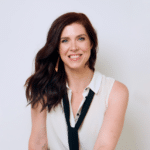I’m curious about nearly everything that contributes to living a healthier, vibrant, and mindful life (which is a good thing, since it’s my job to help you live that kind of life).
I also have an opinion about (nearly) all of it. No surprise there, especially to anyone who knows me personally. 😉
Because of this, people ask me questions. Lots of them.
Clients. Friends. Family. Co-workers. Strangers I’ve just met at a party. For as long as I can remember – even before I became a health coach – I was the go-to person for info about food and fitness.
Here are 14 of the questions I get asked the most – with the “short answers” plus links to earlier blog posts with more through answers.
[ctt title=”Get answers to 14 common questions about being healty!” tweet=”Get answers to 14 common questions about being healthy! via @laradalch http://ctt.ec/0EBxM+” coverup=”0EBxM”]
And if you don’t see YOUR most burning food, fitness, mindfulness, wellness, health, etc. question, click here and tell me what it is. I’ll try to answer it in a future blog post (which you’ll know about right away if you add yourself to my email list).
Are carbs bad?
Short answer: It’s complicated. Read on for what to consider when you’re choosing to eat or not to eat this very misunderstood food group.
Should I eat more protein?
Short answer: It depends on you and your fitness goals, among other things. But I can tell you that I’m not a fan of any “dietary theory” that advocates eating primarily protein. (A little foreshadowing for you.) Here’s why.
How often should I exercise?
Short answer: It depends. (Tired of my saying that yet. 😉 On your fitness goals, your general health level, and what you’ll actually do. The Centers for Disease Control and Prevention (CDC) recommends 150 minutes a week of moderate intensity aerobic activity or 75 minutes a week of vigorous intensity aerobic activity, plus varying amounts of strength training for most adults. You can even do it in 10 minute increments – it still counts!
Check out these blog posts for more help with the exercise question:
And what do I do if I hate exercise?
Short answer: Reframe “exercise” as “movement.” Doesn’t matter HOW you move – dancing, playing drums, chasing after your toddler, hiking home from work, taking the stairs – it all counts! Try adding just 5 minutes of extra movement to your day and see where you end up. And read this post for more ideas and motivation.
I have terrible sugar cravings! How do I make them stop?
Short answer: Sort out WHY you’re craving sugar. Click here to learn more about how to do that. (And if you want my help taking control of your sugar cravings, check out 10 Days to Sugar Freedom.
Do I have to eat breakfast?
Short answer: Nope. But I do recommend it. Here’s why. And here are a few quick breakfast ideas for busy mornings.
Should I eat late at night or just wait until the next morning?
Short answer: Contrary to popular belief, when you eat has very little effect on weight gain. Not only that, but going to bed hungry makes it tough to sleep – and sleep deprivation can have nasty consequences when you’re trying to lose weight.
So if you’re hungry, eat! Just don’t overdo it, because eating TOO much before bed can also cause trouble in dream land.
This post from Born Fitness does a great job of explaining why eating at night doesn’t make you fat.
Do you think I should try a cleanse?
Short answer: It depends on why you want to do a cleanse and which one you’re doing; but generally speaking, I’m not a fan of cleansing… at least not in the way that most people think about it. Here’s another way to approach cleaning up your diet.
What’s the deal with coconut oil?
Short answer: It’s yummy. 😉 It’s great for high-heat cooking. And it appears to raise HDL cholesterol levels (i.e., good cholesterol). But it’s still a saturated fat, so best to use it sparingly until there’s more research to back up health blog claims. Choose healthier fats like those from olive oil and nuts more often than not.
Here’s a decent overview of the pros and cons of coconut oil from WebMD, in case you’re curious.
Do I need to take a vitamin? What about other supplements?
Short answer: I’ve gone back and forth on this one many times, but I always end up back with a high quality multivitamin (and sometimes an iron supplement, depending on what’s going on with my body). I love New Chapter Every Woman’s 40+ One Daily Multi, and I buy it at a significant discount from Thrive Market.
Outside of multivitamins to fill the nutritional gaps left by our diets, I’m not a big fan of supplements. They isolate nutrients from the foods in which they occur naturally – in my view, you’re much better off eating the whole food (along with all of the co-nutrients that allow your body to better process that one “magic” nutrient).
This post goes into more detail about the pros and cons of taking vitamins and supplements.
Will counting calories help me lose weight?
Short answer: In the short term, maybe. In the long term, it’s a pain in the butt and will create all kinds of unnecessary stress around food – NOT the recipe for sustainable weight management. Not only that, but all calories are NOT created equal. Here’s why.
I’ve been known to ask my clients to track food intake early in our work together, as a means of bringing mindfulness to their choices. But my food diary doesn’t include calorie counts. I’m much more interested in how the food affects your mood and your energy. Sorting THAT out – and finding a flexible way of eating that helps you feel vibrant, alive, and gorgeous every day – is the ultimate goal.
I’ve been eating vegan lately, and I feel pretty good. But I worry about getting enough of the right nutrients. Do you have any suggestions?
Short answer: A vegetarian or vegan diet supports many bodies quite well. Whether or not your body is one of them requires some experimentation. If you’re making the switch from a more varied diet, I strongly recommend that you work with a health coach or nutritionist who can educate you about the nutritional gaps in vegetarian/vegan diets – and how to fill them.
Here’s what I’ve learned – both from my own journey as a vegetarian for 10+ years in my 20s and 30s, and from helping clients navigate the shift.
Is soy good or bad?
Short answer: Soy tends to be a heavily processed food and so isn’t at the top of my list. Having said that, fermented and traditional soy products like tofu and tempeh are a nice addition to many peoples’ diet. It just depends on your health history.
This post about different kinds of milk (i.e., cow, soy, nut) covers some things to consider when considering soy, along with a link to more resources.
I’m curious about meditation, but there’s NO WAY I can sit still and keep my mind quiet! What should I do?
Short answer: Meditation is a hot topic these days, especially among people who’ve read about its many benefits. I’ve been meditating every day for 10-15 minutes for almost a year, and it’s been a true game changer for this Type A, mind-racing gal. 😉 Having said that, meditation doesn’t have to involve sitting quietly on a cushion in a yoga studio!
Here’s another way to approach it if sitting still isn’t your thing. Or check out my favorite mindfulness meditation app, one that I recommend to many of my “Type A” clients. 🙂
———
That’s A LOT of stuff! And answers sometimes create more questions, especially when it comes to health.
Leave your questions in the comments below. I’ll do my best to answer them here or in a future blog post!






